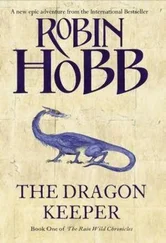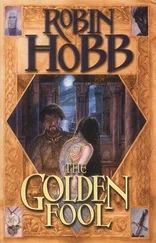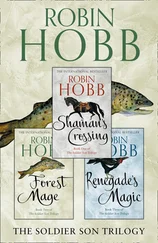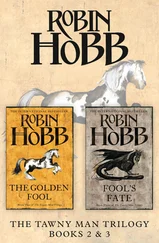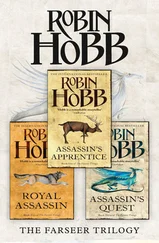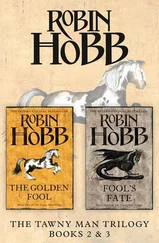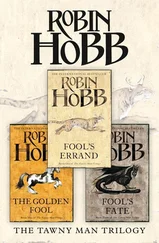Had Hamilcar been the Carthaginian general, the tactic might have worked. Everyone knew that Carthaginians avoided fighting in the open, for they dared not stand against the organized might of a Roman army. But Xanthippus was a Spartan and not to be taken in by show. Nor did he allow his men to fight like Carthaginians. Marcus had drawn his force confidently into their standard formation, infantry in the middle and their cavalry flanking them on both sides, and moved boldly forward. But Xanthippus had not drawn back. Instead, he sent his elephants crashing squarely into the middle of the infantry formation. Even so, the beleaguered square of infantry had held. Flavius had been there. They had fought like Romans, and the lines had held. But then Xanthippus had split his cavalry, a tactic that Flavius had never seen in such a situation. When the horses thundered down on them from both sides, their own outnumbered cavalry had gone down, and then the flanks of the infantry formation had caved in and given way. It had been chaos and bloody slaughter the like of which he’d never seen. Some men, he had heard, had escaped, to flee to Aspis and be rescued later by the Roman fleet. Those soldiers had gone home. Flavius and close to five hundred others had not.
Consul Marcus Atillius Regulus had been a prized captive and a valuable hostage and was treated as such. But Flavius had been only a soldier, and not even one from a wealthy family. His body and the work he could do had been his only worth to the victors. As a spoil of war, he’d been sold for labor. He’d taken a blow to the head in the course of the defeat; he’d never know if it had been from a horse’s hoof or a random slingstone. But for a time, he’d seen rings around torches at night and staggered to the left whenever he tried to walk. He’d been sold cheap, and his new master put him to work in his grain fields. And there he had toiled for the last four years. Some seasons he plowed and some he planted, and in the heat of the summer as the grain began to ripen, he’d moved through the field, shouting and flapping his arms to keep the greedy birds at bay. Rome and his soldiering days, his wife and his children, and even Marcus, the boyhood friend who had gotten him into this situation, all had begun to fade from his thoughts. Sometimes he’d felt that he had been a slave always.
And then one night he’d awakened to a familiar pain, and known that the dragon’s tooth was once more moving inside his flesh. And within a handful of days, he’d limped away from his overseer.
Had the shifting tooth in the old wound been an omen, a warning from the gods of what was to come? Flavius had given small thought to such things in recent years. The gods of his youth had forsaken him; why should he care any longer to give them honor or even regard? Yet it seemed to him now that the tooth’s stirring on the final leg of its journey through his flesh might have come close to the time when Marcus was making his final appearance before the Chief Magistrates of Rome. In the days that followed, the old wound had swollen, turned scarlet, and then began to crust and ooze. And on those same days, he heard the gossip that even Carthaginian slaves would repeat. “The war will soon be over. They paroled the Consul to Rome, to present their treaty terms for them. Consul Regulus is to meet with the Roman magistrates and convince them that it’s useless to defy us. He gave his word that if Rome did not accept the terms, he’d return to Carthage.”
Flavius had shaken his head and turned wordlessly away from their rumors. Marcus had gone home without him? Marcus had gone home, abandoning the five hundred men who had once served him? Marcus would present Carthaginian terms of surrender to Rome and urge them to accept them? That did not seem like Marcus. For three days, he had mulled it over as he limped through a grain field, flapping his arms at black birds. Then he had decided that the moving tooth inside his flesh was a message. That very day, he had made his escape and begun his slow journey back toward the city of Carthage.
It was a long and weary way for a man half-crippled, without a coin or a purse to put it in. He’d traveled by night, stealing what he could from fields and outlying farmsteads. He avoided speaking to anyone, for although he had learned Punic during his servitude, his Roman accent was strong and would betray him. As the miles between him and his former owner had increased, he’d become a bit more bold. He’d stolen worn garments from a ragpicker’s cart that were much more serviceable than the twist of cloth his owner had given him. He’d begged, too, sitting at a village gate and showing his oozing wound and bony body, and a few fools had taken pity on him. And so he had made his slow way, step by step, toward Carthage.
Two nights ago, he had camped in sight of the city walls. As evening fell, he’d found a place to sleep in the dubious shelter of a leafless grove of trees. In the night, he’d wakened to the fever of his wound. In the feeble light of a full moon, he had mustered his courage, set his teeth, and bore down on the swollen tissue. He’d gripped his thigh’s hot flesh in both hands and squeezed, pushing up and away from the bone. The dragon’s tooth had emerged slickly, jabbing its way out of his body just as bloodily as it had gone in. It had passed through his entire leg, from back to front. He’d pulled it from his flesh, his wet fingers slipping on the gleaming white tooth’s smooth surface. When he’d finally tugged it from its hiding place, a gush of foul liquid and pus had followed it. And for the first time in over six years, he finally felt alone in his body, freed of the dragons tooth and its presence in his life. For a short time, he had held the tooth in his hands, sick with marvel at how long he had carried it. It was sharper than any arrow, and longer than his forefinger. The snapped-off stump where it had broken from the monster’s jaw was still sharp-edged. He clutched it in his hand and slept well that night, despite hunger and a bed that was no more than dirt and tree roots.
The next morning, he had risen, bound his old injury afresh, and limped off in search of Marcus. Midway through his first day of walking, he found a likely stick along the roadside and made it his staff. At dusk that day, he came to a sluggish flow of water in a sunken stream. He’d followed it upstream, into a farmer’s field, and found a quiet place to bathe his wound and wash out his scant clothing and his bandaging. He’d stolen handfuls of underripe grain from the field, filling his belly with the milky, chewy kernels. When he lay down that night to sleep, he’d dreamed of home, but not of his wife and his sons. No. He’d dreamed of a time before them.
His father’s small acreage had been adjacent to that of Marcus’ family. Neither parent was a wealthy man, but while Flavius’ father was a farmer who had been to war, Marcus’ father had risen to the rank of Consul and never forgotten it. His family holding had been twelve acres, while Marcus’ father could claim only a scanty seven, yet when Marcus was recounting his father’s heroism, Flavius had always felt he was the poorer of the two boys. He smiled bitterly to himself. When Marcus’ father had died, Marcus had been devastated, not just by the man’s death but also by the thought that his days as a warrior were finished. Marcus had gone to the Roman Senate and reluctantly requested to be freed from his military duty, so that he might return home to till his seven acres and support his wife and children and mother, for with his father gone, there was no one else to shoulder that task. Yet even in that early flush of his career, the Senate had recognized his military worth. They’d taken from taxes the funds to hire a man to till the lands of Marcus Atillius Regulus and sent him forth yet again to serve Rome where he functioned best, at the bloody forefront of the war.
Читать дальше

